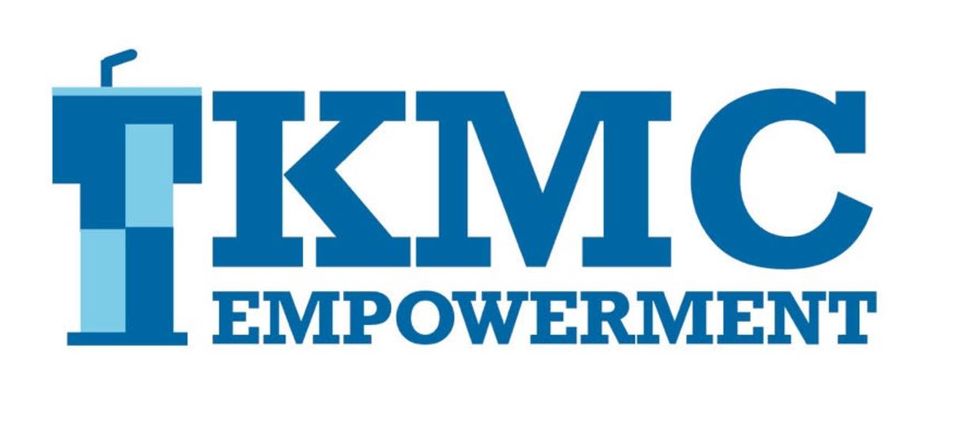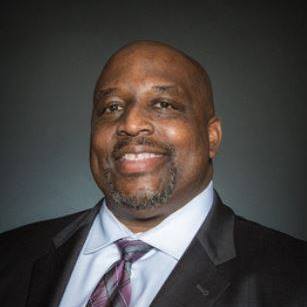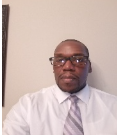Maximize Opportunities with Relentless Enthusiasm: Kevin Coleman “The Empowerment Coach”
“I’ve had the opportunity to have critical dialogue when it comes to diversity, equity and inclusion, but also about accessibility.”
This is the mission for veteran and entrepreneur Kevin M. Coleman, known by many as “America’s #1 Empowerment Coach.” His organization, KMC Empowerment, focuses on how businesses can grow by training catered specifically to their needs. In addition, he also teaches leaders on how to become more DEI-focused in a rapidly expanding global workforce that is bringing in new ideas and different backgrounds. Recently, he spoke with the PW Perspective about what empowerment means, and how he’s been able to meet with so many different businesses over the past few years.

It starts with creating an environment that is accessible. “Many times, we don’t think about making our workspace compliant, so our workers can be productive. We need to make sure than any impairment they have, the tools are in place for them to be successful,” says Kevin. He was meeting with a group of leaders at the SHRM conference in Las Vegas a few weeks ago, and he talked about the experience.
“What I did when I met with them, I didn’t talk about the typical DEI, I gave them real life examples, so they can begin to see how it makes an example in our lives. For example, when I talk about diversity, I would have two people come to the stage and have them stand face to face with each other. Then, I would ask the audience to shout out what are their differences. It could be hair, gender or what have you. Each time there was a difference, they had to take one step away from each other. By the end, they were on other ends of the stage.”
“Then,” he continued, “I would have the crowd shout out their similarities, and they would come back closer with each step. By doing that exercise, we understood that if you don’t have diversity, it will separate us. When you start looking for those commonalities, it brings us together.”
So, are those strategies being implemented? “I don’t see it as much, because we fall into our old mindset of the status quo,” he says. “What we need to do is change the paradigm, and we are the catalyst for change. However, I have people say, ‘I am the catalyst for change,’ so they take ownership.”
Kevin addresses how the Great Resignation played a role in the necessity for change. “One thing about the different generations, and people are looking for a cause, something they believe in. People want something tangible, and now we’re seeing different workers looking for something to hold on to. It’s up to the businesses to look outside the box and start thinking about how they can bring more purpose to the workplace.”
“I’ve met with leaders who sent surveys to employees to document their values, and in some cases, they allow employees two hours a week for them to do something that matters to them. It makes for a much happier environment.”
As for employees, Kevin uses the PIES acronym as to how they’re developing. “The first is Physical, meaning how are you growing in your health. Intellectually, what are you learning to grow in your career? Emotional Intelligence, what techniques are you using to grow mentally. Finally, S is for Spiritually; do you have people that are pouring into you, and that’s what managers need to do. They need to develop mentorships in order to help employees become their best?”
He credits his faith as the foundation for his purpose. “I believe that iron sharpens iron, and everything I do, it’s to glorify God, and to be more like Him.”
Circling back to how his classes empowers DEI strategies, he also implores organizations that the first aspect of it is justice. “Justice needs to be the foundation, and leaders have to bring a just mindset from the beginning. It has to be the cornerstone of making the right decisions. If you are just, everything else falls into place.”
“When you become more inclusive, you may have someone from a different background and mindset. Do you have to agree totally with them? No, but you have to be willing to include them, and that’s how we get inclusivity?”
In addition to the acronyms, he already uses, another one that Kevin abides by is PICOH “Pioneer, only way you’re going to be one is if you give them the information and be open to discussion. C means they become champions for the cause. Then, they become I for influencers, spreading the word about how it’s working.”
The other two are for those who find change difficult to process. “Next, H is the hesitators, and you still have to realize they have value, so leaders must work with them to become a pioneer. The last letter of the PICHO model are the obstructers The key is, you have to work with them, and be consistent about your goals. They will come around and see that your concept works best for everyone.”
“If you don’t have that trust by being transparent, you will lose people. They don’t leave jobs, they leave people. What I do in my training is to be assertive, because they respect that. Being passive aggressive doesn’t work, and if we’re too much of one or the other, it skews the dialogue.”
“When you’re transparent, change becomes easier to accept.”
Below is where you can find out more about KMC Empowerment and its services:
Website: www.KMCEmpowerment.com
Email: Kevin@KMCEmpowerment.com
LinkedIn: https://www.linkedin.com/in/kevin-m-coleman-the-empowerment-coach-9727196b/
Instagram: https://www.instagram.com/kevinm.coleman/
Twitter: https://www.Twitter.com/KMCEmpowerment1
Facebook: https://www.facebook.com/KMCEmpowerment1/
Video Testimonials: https://youtu.be/4lMU1LVj7Ug



